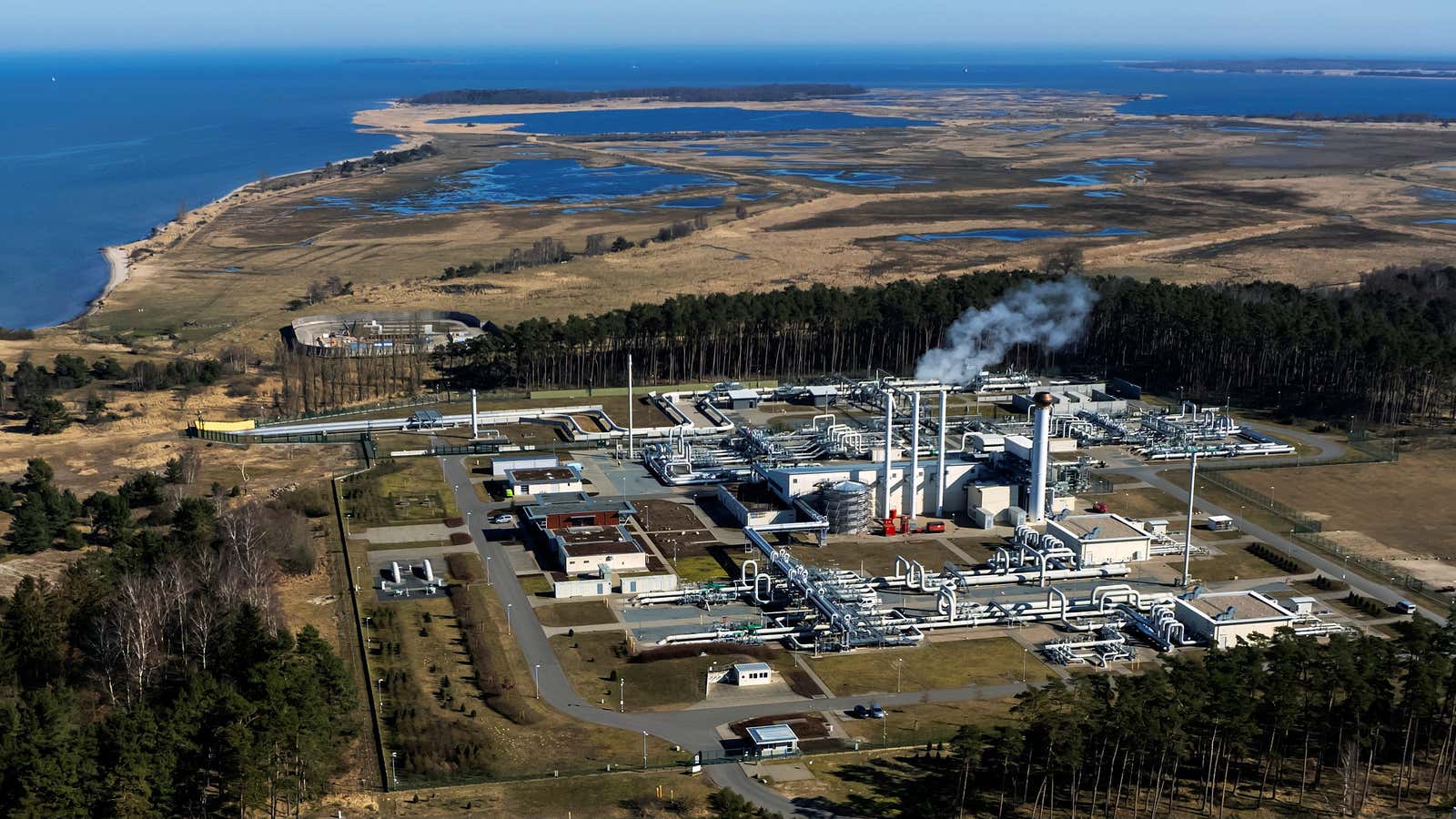Summer months are, of course, the slow season for natural gas demand in Europe, so when Russia shut down Nord Stream 1, the continent’s biggest gas pipeline, for scheduled maintenance today (July 11), it seemed like welcome timing. Europe’s gas outlook got another boost when Canada said it could return a key part for Nord Stream 1 that had been held up due to sanctions on Russia, so when the pipeline is reopened, it should be able to carry more gas than before.
The key question now is when that reopening will happen, if it happens at all.
Officially, the repair should take about ten days. And Russian president Vladimir Putin has an interest in maintaining the flow of gas, which is a vital source of income. But some German officials fear that politics could win out over profit, and prompt Putin to drag his feet on the pipeline repairs, which could cause short-term scarcity and more price spikes, wreaking further havoc on Europe’s economy.
European countries need to refill gas storage tanks during the summer
But taking the pipeline offline, even for a relatively short period in summer, threatens Europe’s best defense against the near-certainty of Russian gas squeezes in the vulnerable winter months: filling their storage tanks now.
In June, European Union lawmakers approved a policy that asks bloc members to fill their gas storage to at least 80% of capacity by November. Most of the continent’s biggest gas consumers are currently storing far less than that, following a winter with high demand and a period of low gas production during the pandemic. (The United Kingdom is less secure than this chart suggests, since its storage capacity is very low, only enough to support a few days.)
The likelihood of an extremely tight gas market during the winter is already pushing up futures prices. In the UK, for one, average household spending on energy for this year could reach about $4,000, 65% above last year. Germany and other countries are already burning more coal for electricity so they can sock more gas away in storage. Without filling the tanks, there’s a high risk that wintertime rationing will be made mandatory, and that Russia will have more leverage over a weakened Europe.
